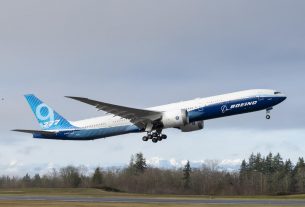The report by Tamur Goudarzi Pour, Head of the Lufthansa Group Customer Excellence Task Force, on the ambitious plans for the future of air travel, including a move away from the traditional PNR (Passenger Name Record) system. In an interview with Linda Fox, senior reporter for PhocusWire, Pour discussed his vision for a “PNR-free world” and the importance of customer experience to the airline industry’s post-pandemic recovery.
Despite the challenges, Pour remains optimistic about Lufthansa’s future. “We are on track for double-digit growth this year, but at 92% of 2019 levels,” he explained. “This year is the year of catch-up, and we are optimistic. We have severely suffered from strike action, but we have experienced demand over summer, so it will pick up again.”
However, Pour acknowledges the lingering effects of the pandemic and recent disruptions. “Two summers post-Covid, there’s been lots of issues,” he said. “We still have to do a lot of brick and mortar fixing in this third summer.”
Lufthansa Group is putting its money where its mouth is with significant investments. “We are investing 2.5 billion euros in products and services by 2025,” Pour revealed. “Roughly 500 million of that is on non-aircraft, including the digitization side.” Additionally, the group is investing 3 billion euros in financing new aircraft.
The Bridge Series: Human-Machine harmony reimagines travel
The latest installment of The Bridge Series, a joint initiative by WiT and Phocuswright, focused on how travel technology is evolving to meet the shifting needs of travelers in a post-pandemic world. The panel discussion, titled “Travel Tech Trends Around the World,” brought together industry leaders to explore how human and machine intelligence are combining to personalize the travel experience.
Siew Hoon Yeoh, Founder of WIT and Editorial Director of Northstar Travel Group Asia, kicked off the conversation by highlighting the transformation in the human-machine interface (HMI) as the most significant current change. Each panelist then shared a specific tech trend that excites them within the context of this evolution.
Sustainable travel takes flight with technology
Karen Bolda, Senior Vice President of Product & Technology at Expedia Group, emphasized the role of technology in driving sustainable travel practices. “As a parent,” she said, “I’m particularly excited about how technology can transform sustainable travel – for example, through the development of alternative jet fuels. Protecting the planet for our children’s future is paramount.” Bolda went on to highlight the importance of using technology to facilitate authentic travel experiences.
Unveiling travel’s next billion from Asia, Africa, and the Middle East
A panel discussion at Phocuswright Europe painted a vivid picture of the humans driving the travel industry’s future. Moderated by Siew Hoon Yeoh, Founder of WIT and Editorial Director of Northstar Travel Group Asia, the panel brought together regional leaders to explore the unique opportunities these markets present.
Why these regions matter: A look at the numbers
The sheer size and demographics of these regions are undeniable. Stephan Ekbergh, CEO of Travelstart, highlighted Africa’s youthful population and entrepreneurial spirit. “Africa is an innovation story,” he declared. “With a 22% entrepreneurship rate and a population with an average age of 18, Africa is all about the future.” Ekbergh pointed to Zimbabwe’s growing cryptocurrency adoption as an example of Africa’s leapfrogging approach to technology. “Travel in Africa is also unique due to limited infrastructure,” he added, “bad roads mean everyone flies.” Ekbergh concluded by emphasizing Africa’s enormous potential, stating, “In the next 10 years, Africa’s working population will be bigger than China or India.”
Chee Chong Chan, CEO of GlobalTix Pte Ltd, shifted the focus to Asia’s diverse markets. “Asia is a collection of growing economies,” he explained. “We have a significant population with disposable income – people with income about $250,000 and low housing costs, creating a travel-hungry middle class. Additionally, Asia is home to 157 million Gen Alpha individuals, a generation that prioritizes experiences over material possessions.”





